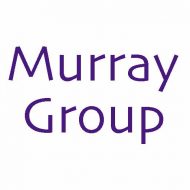National Institutes of Health
A Compact Turnable Infrared Laser for MALDI MS
- R42 RR015134
- $526,129
- Role: co-I
- 8/2001-7/2003
Abstract
The goal of this Phase II STTR cooperative research program between OPOTEK and Emory University is to continue development of a small and inexpensive infrared laser based on optical parametric oscillator (OPO) technology and to develop a target system specifically designed for liquid matrix IR-MALDI. This package of IR laser and ion source is designed for high-end MALDI mass spectrometers, and will allow the user to switch rapidly between IR and UV MALDI modes. The research is divided into two sections: development of the IR/UV laser based on our Phase I laser system; and development of and ion source for IR- MALDI, tailored to the experimental conditions that were found to be ideal for IR-MALDI from liquid matrices. Open areas for commercial analytical applications where IR MALDI has advantages over UV MALDI include analysis of high-mass DNA, the analysis of other high molecular weight biomolecules (100 – 500 kDa), analysis of biopolymers from gel blots or directly from cell or tissue samples, and the analysis of pharmaceuticals and other low molecular weight molecules (200 – 1500 Da). Work will be performed to try to optimize our laserlon-source package for performance in these areas.
PROPOSED COMMERCIAL APPLICATIONS: The need for small and inexpensive IR light sources for matrix assisted laser desorption ionization (MALDI) mass spectrometry is great. Commercial applications for the compact IR OPO either as a stand alone retrofit unit or as an option for new mass spectrometers include analysis of high mass DNA and proteins, gel separated proteins, low molecular weight species, direct liquid introduction and frozen tissue sections.

